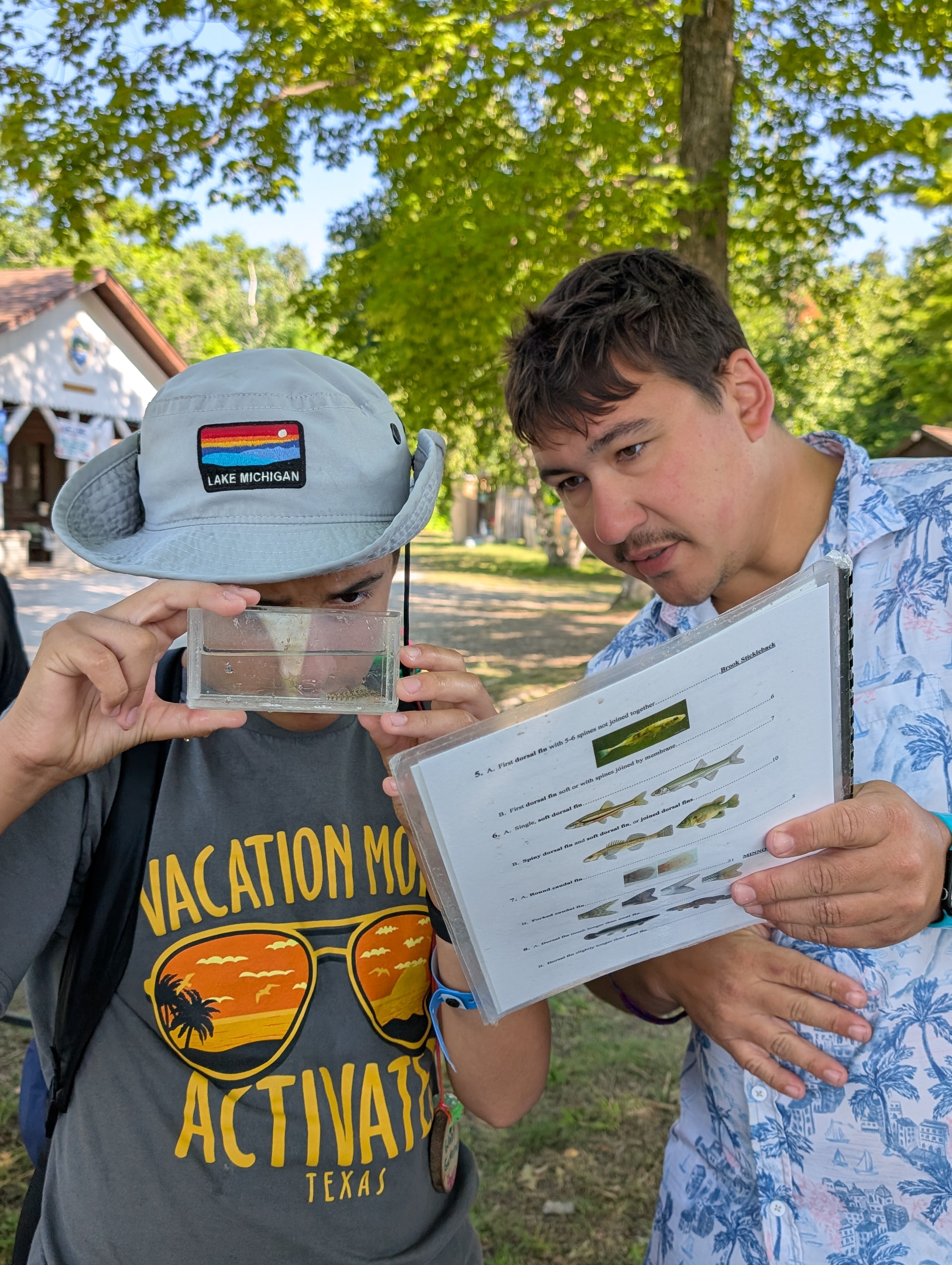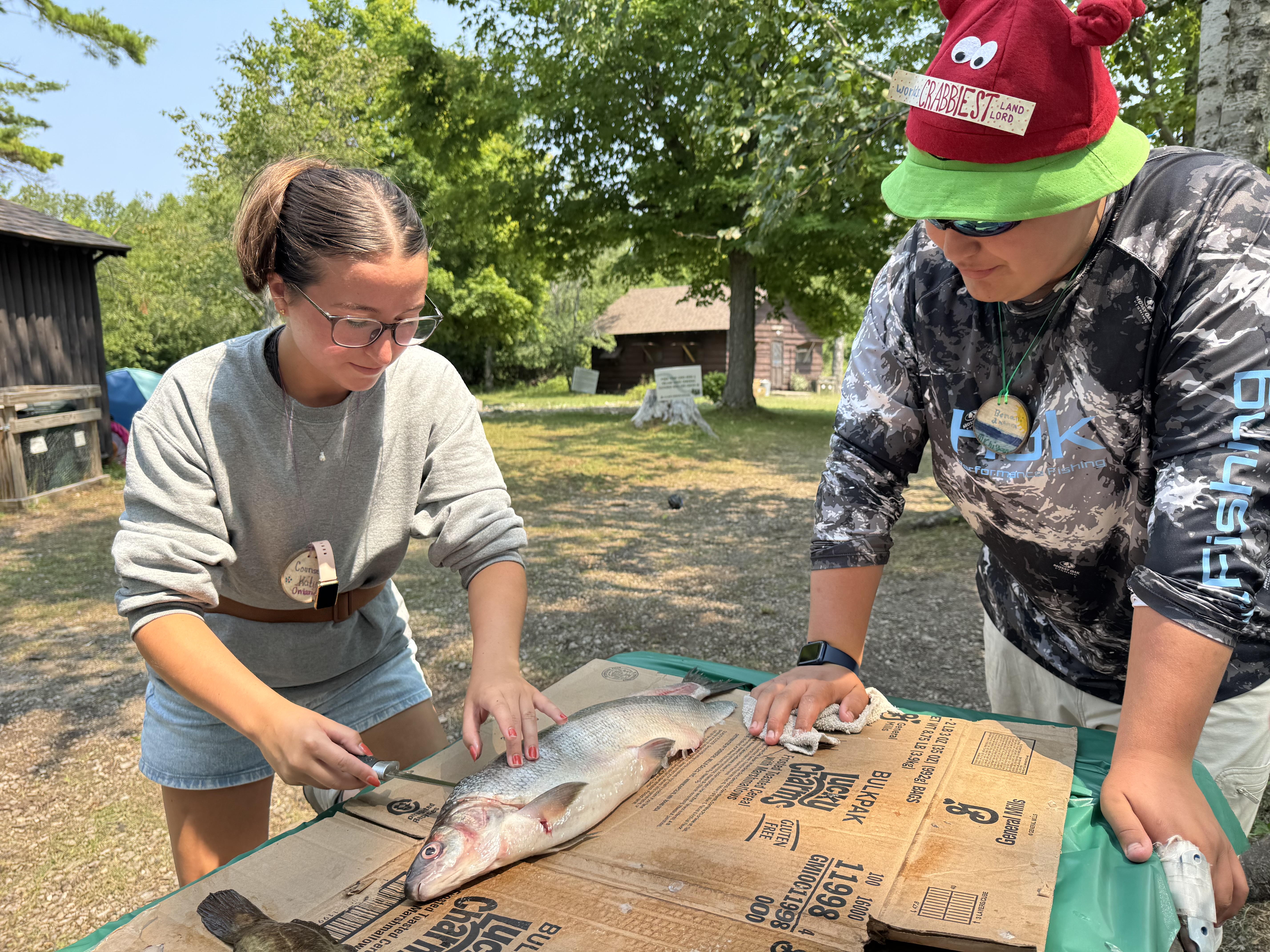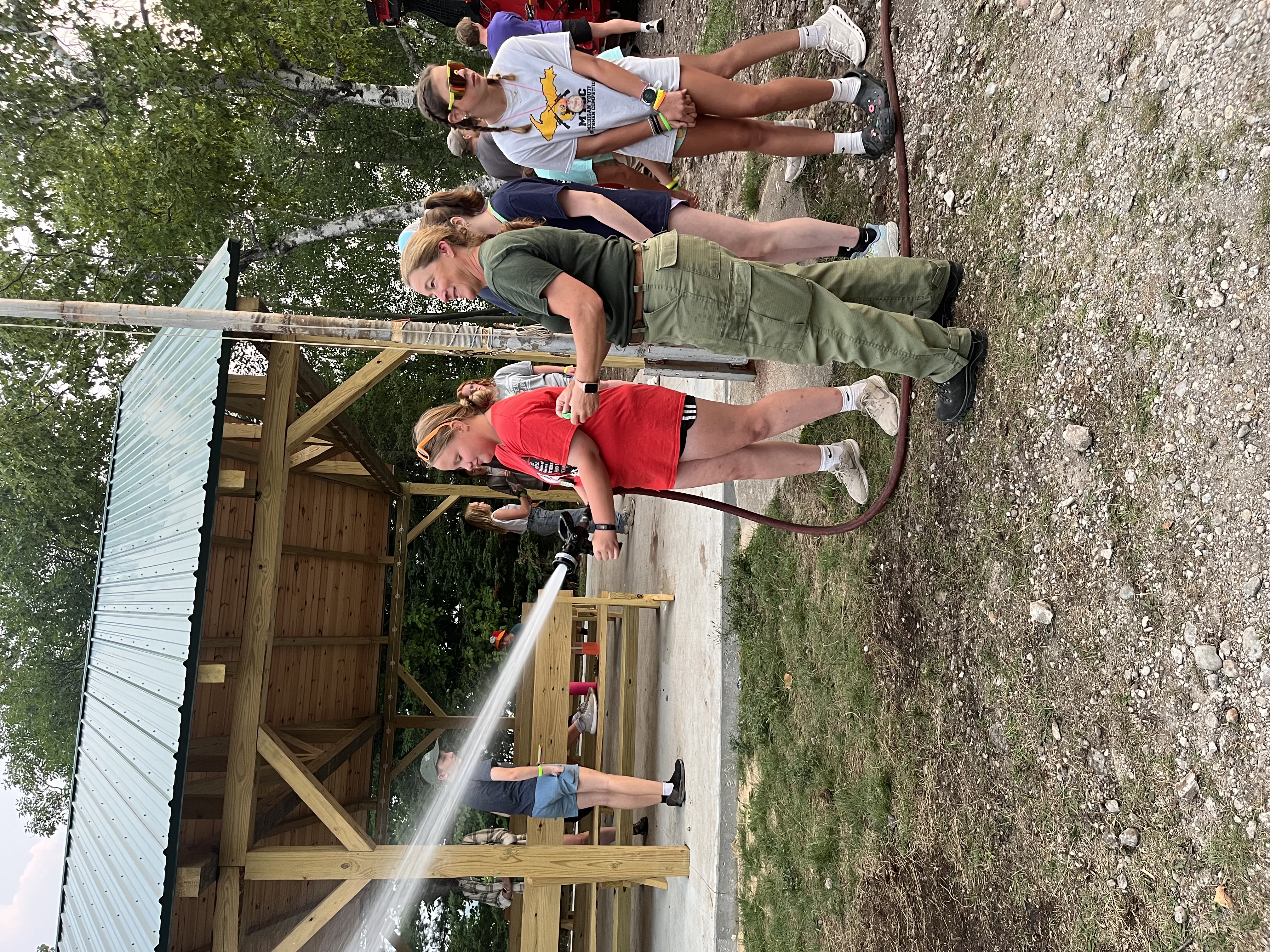Fishing, snorkeling, sailing - it’s all in a day’s work for these Michigan Sea Grant staffers
As a 4-H Great Lakes Natural Resources Camp sponsor, Sea Grant offers hands-on natural resource lessons.

Michigan Sea Grant has sponsored Michigan State University’s 4-H Great Lakes Natural Resources Camp for many years, and 2025 was no exception. Extension staff members Brandon Schroeder, Elliot Nelson, Angela Scapini, and Cindy Hudson all played important roles in helping to make science fun and exciting for the 63 campers.

The week-long 4-H GLNR Camp, held this year in Presque Isle County at Camp Chickagami, provides hands-on learning experiences engaging youth, ages 13-15, in exploring science, leadership, careers, and recreation related to Michigan’s Great Lakes and natural resources. The camp, a MSU pre-college program, is sponsored by Michigan State University Extension, 4-H Youth Development, Michigan 4-H Foundation, Michigan Sea Grant, and MSU Department of Fisheries and Wildlife.
During the camp, teens participate in science sessions relating to local woodlands and wildlife, Great Lakes invasive species, fisheries, and more. Campers learn about Michigan’s outdoors in numerous hands-on activities, while exploring potential careers by working with professional experts. Staff members from NOAA’s Thunder Bay National Marine Sanctuary, Michigan Department of Natural Resources Law Enforcement and Forestry Fire Department, and the Great Lakes Fishery Commission attended during career night to describe their work – while also having some hands-on fun with animal furs, sea lamprey, fire hoses, and underwater robots. (pictures)
This year, Extension educators Schroeder, Nelson and Scapini helped students experience fishing, fisheries biology, snorkeling and sailing. Early rising campers enjoyed opportunities to go fishing with rod and reel for fun, while morning fisheries science sessions found campers pulling research nets to survey the fish community of Lake Esau. They documented biodiversity (the total number of species found) in the lake, and also documented the overall status and health of the population of Rock Bass in the lake by measuring and weighing each fish to then calculate the number age classes found, growth rates, and overall condition of the fish surveyed. Aside from fishing for fun and science, campers experienced the food values of fish by learning about Great Lakes commercial fisheries, and processing fish harvested from the Lakes. These fish filleted at camp translated into the highlight and favorite Friday night fish fry, which for some campers, is the first time they have eaten fish!

Hudson, communications manager for Michigan Sea Grant Extension chaperoned groups of students on a glass-bottomed boat for a shipwreck tour aboard the Lady Michigan at the Thunder Bay National Marine Sanctuary. This excursion allows campers to experience the shipwrecks just under the surface of Lake Huron and helps foster a deeper appreciation for the maritime heritage of the area and how people have connected with the Great Lakes over time. Back on land at the museum, each group learned more about marine archeology and tried their hand at rendering a likeness of a ship artifact.

More than just science, this camp experience also fosters awareness and appreciation of the diverse values Michiganders have toward our Great Lakes resources.
Learn more about attending camp or applying to be a teen counselor at the camp website.
Michigan Sea Grant is committed to research, education, and outreach through partnerships with people and organizations to foster healthy Great Lakes coastal ecosystems, communities, and economies. A collaborative effort of the University of Michigan and Michigan State University and its MSU Extension, Michigan Sea Grant is part of the NOAA-National Sea Grant network of 34 university-based programs.
This article was prepared by Michigan Sea Grant under award NA24OARX417C0157-T1-01 from the National Oceanic and Atmospheric Administration, U.S. Department of Commerce through the Regents of the University of Michigan. The statement, findings, conclusions, and recommendations are those of the author(s) and do not necessarily reflect the views of the National Oceanic and Atmospheric Administration, the Department of Commerce, or the Regents of the University of Michigan.



 Print
Print Email
Email


